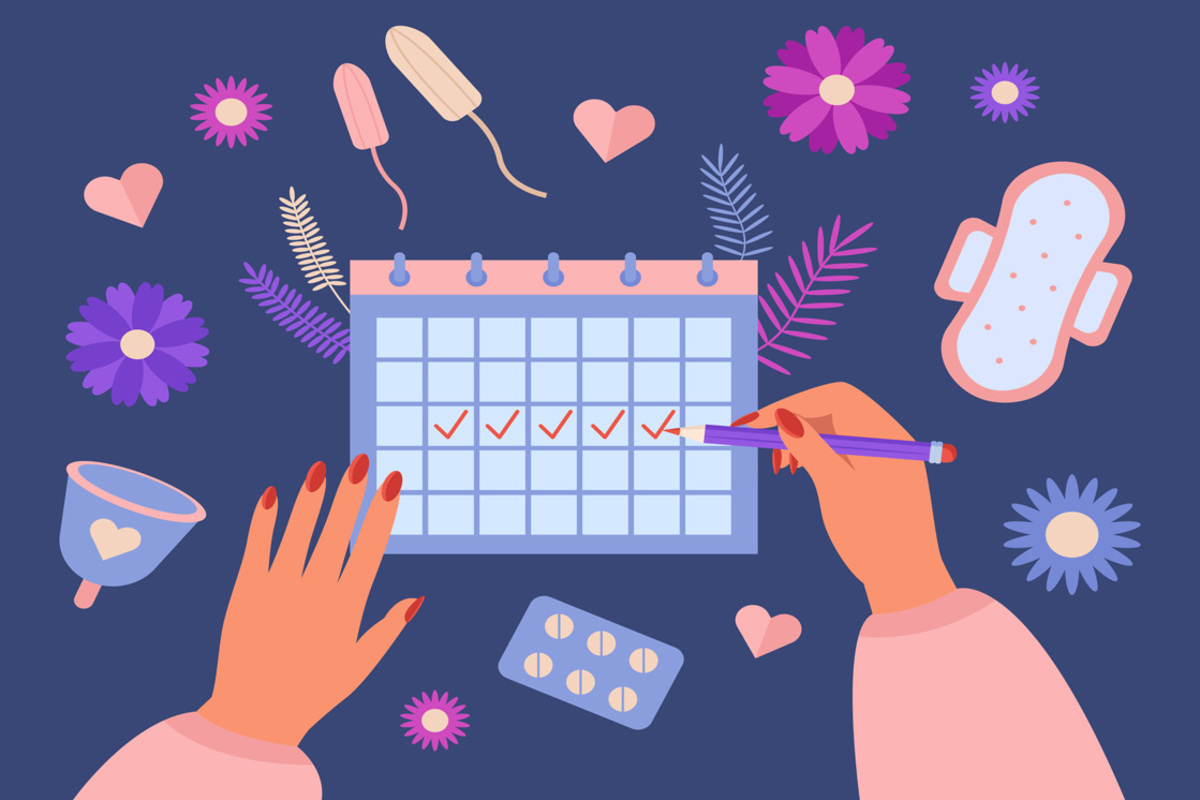Let's break the taboo and talk about periods
Kimberly Grabham
02 October 2024, 11:00 PM

Most women would remember their first period (menstrual cycle).
It is a pivotal moment in a woman’s life, the start of a natural body function that will span decades.
However, young women in Australia and around the world still often do not know what a period is, how it works, or have the necessary resources to properly take care of themselves during this monthly happening.
It is so much more important than many may realise, to know your body, and how it works, as the menstrual cycle is a key indicator of overall health and sadly.
Pain, mood swings or abnormal bleeding are common and often translate to missing school, evading sport and mental health challenges.
Understanding the menstrual cycle is also important to you can give the information to your doctor if need be. A doctor needs to know your regular cycle and pain levels so they know whether symptoms you are having are normal, and to know best how to treat you.
Knowledge of your period and your body also needed to get through major events and issues such as fertility, pregnancy, breastfeeding and menopause.
The lack of menstrual education has profound implications for girls' and women's health.
Inadequate understanding can lead to missed diagnoses, delayed treatment, and unnecessary suffering from conditions such as menstrual cramps, irregular bleeding, and endometriosis. Furthermore, misconceptions about menstruation can contribute to negative body image, anxiety, and social isolation.
It also means they may not even go to a doctor, writing off their debilitating pain or heavy bleeding as normal.
Amazingly, although periods, and knowing what our individual normal in regards to them should be an essential part of the birds and bees educational learning at school, this is far from the case.
Experts suggest females should understand ovulation, menstruation and basic make up of their bodies and reproductive organs.
Australian research has discovered shocking holes in adolescents’ elementary knowledge about anatomy, ovulation and menstruation.
- It was found many young women did not know ovulation happens about two weeks before their period.
- More than 60 per cent of respondents confused the vulva, external genitalia, with the vagina, the internal canal that extends from the vulva to the cervix. Nausea, period pain and mood swings are very common.
- Mothers, friends and the internet are the common sources of information.
- Research suggests girls prefer to learn about menstruation without boys around.
However, it was found to have made little difference whether the girls attended a same sex or mixed school, as to their level of knowledge.
Importantly, it was found girls who used period-tracking apps were no more likely to have
This suggests there is a pressing need for schools to improve the education they provide about the menstrual cycle. As our previous research recommended, this needs to use evidence-based information presented in clear, accessible ways.
It’s 2024, its time society got with it and created a way to bridge this gap. Schools can provide uniform ways to get information across so it is clear, accurate and impactful.
Resource limitations are often heightened by social and cultural norms that discourage open discussion of menstruation.
It’s a sad intergenerational norm that girls and women have learned there are taboos, secrecy, and shame surrounding the topics of periods.
This results in information about menstruation to either come too late, or not enough information, or it is never learnt at all.
It gets worse though. More barriers exist for girls living in various rural and remote Indigenous Australian communities. Women living in these regions have less access to MHH products having to travel greater distances. It has been reported that remoteness can increase the cost of menstrual hygiene products as much as 100 per cent.
- In addition, they have poor access to pain relief, and either no access or extremely limited access to waste-free reusable products to help limit recurring monthly costs.
- Girls are missing school when they have their periods because they don't want to change their sanitary pads at school.
- There is often there's no soap, no rubbish bins or there's one rubbish bin outside the toilet which means girls have to face embarrassment, walking their rubbish out to the bin in front of others.
- Bins, privacy, dignity, running water and soap are often impeding these Indigenous communities from having period hygiene and comfort.
- Menstruation is considered private 'women's business' in many Aboriginal and Torres Strait Islander cultures, making it a particularly sensitive topic to discuss.
- The chain of traditional forms of learning in Indigenous communities have often been severed.
- Traditionally, it’s a grandmother’s role to impart knowledge in these areas, but a lot of grandmothers experienced mission times where there were strong Christian values around your body, which meant you don’t talk about it.
- Not to mention, sometimes it is like fighting the tide.
- There is immense demand on every single health education resource available, with everything under-resourced.
- Compared to chronic illnesses, periods are not seen as a sickness.
- Overall, periods and education around them is sorely wanting in the remote areas.
- It is a serious concern that has an impact on girls’ and women’s lives, beginning with being able to go to school.
Lack of products, privacy, pain management resources, puberty education, and access to functioning health hardware as key aspects of managing menstruation.